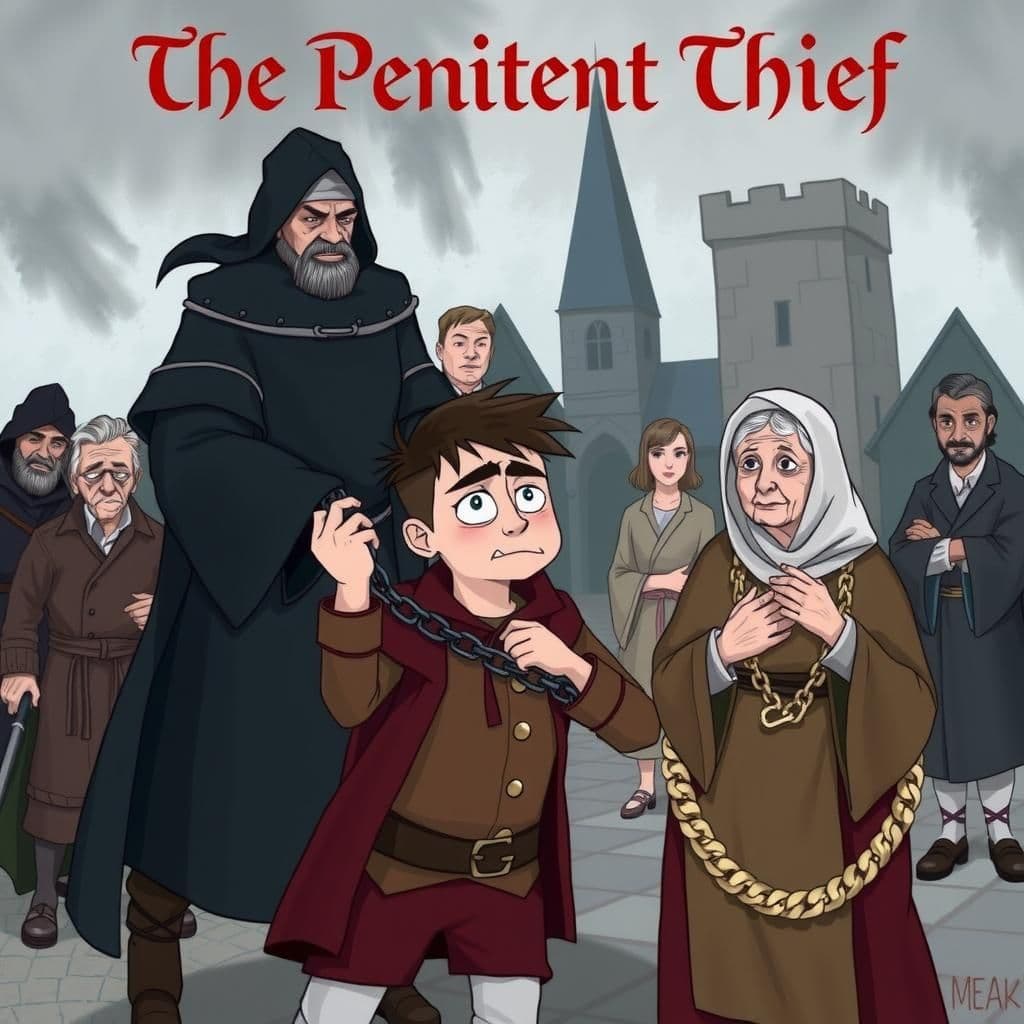The Penitent Thief
In "The Penitent Thief," a man, raised by his mother to steal, faces execution for his crimes and blames her for his fate. As he confronts her, she challenges him by questioning his failure to avoid capture, illustrating the life-changing lesson that personal accountability is crucial. This heartwarming moral story serves as a reminder of the consequences of one's choices and the importance of accepting responsibility for one's actions.

Reveal Moral
"The moral of the story is that one must take responsibility for their own actions rather than blaming others for the consequences of their choices."
You May Also Like

The Patriot and the Banker
In "The Patriot and the Banker," a former politician, having grown rich from questionable gains, tries to open a bank account but is confronted by an Honest Banker who insists he must repay the money he stole from the government first. Realizing the bank's share of the loss is minimal, the Patriot deposits just a dollar, humorously illustrating the lessons learned from stories about accountability and the often feeble attempts at restitution by those who prioritize wealth over integrity. This funny story with a moral serves as a big moral tale, teaching valuable lessons that can resonate with kids and adults alike.

The Wooden Guns
In "The Wooden Guns," a State Militia, seeking to save costs, requests wooden guns for practice, but the Governor prioritizes efficiency and provides them with real guns instead. The soldiers express their gratitude and promise to return the weapons if war arises, highlighting themes found in famous moral stories about responsibility and trust. This tale, reminiscent of famous fables with moral lessons, serves as a cautionary reminder of the consequences of choices made in the name of efficiency over prudence.

The Two Travelers and the Axe
In this short story with a moral, two men traveling together find an axe, and one claims it as his own. When the rightful owner pursues them, the other traveler reminds him to take responsibility for his earlier claim, illustrating that those who share in the gain must also share in the consequences. This short and sweet moral story emphasizes the importance of accountability in both fortune and misfortune.